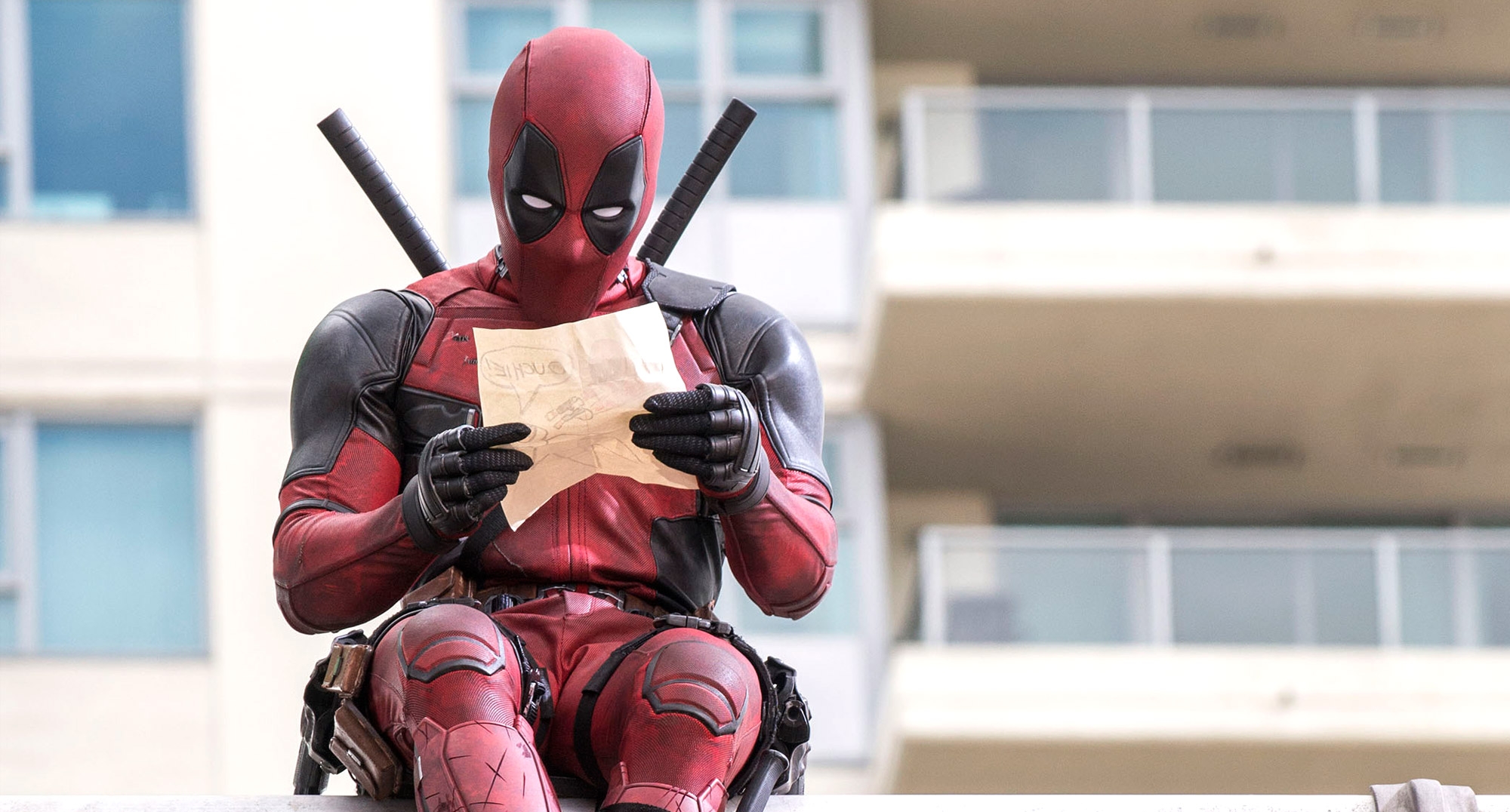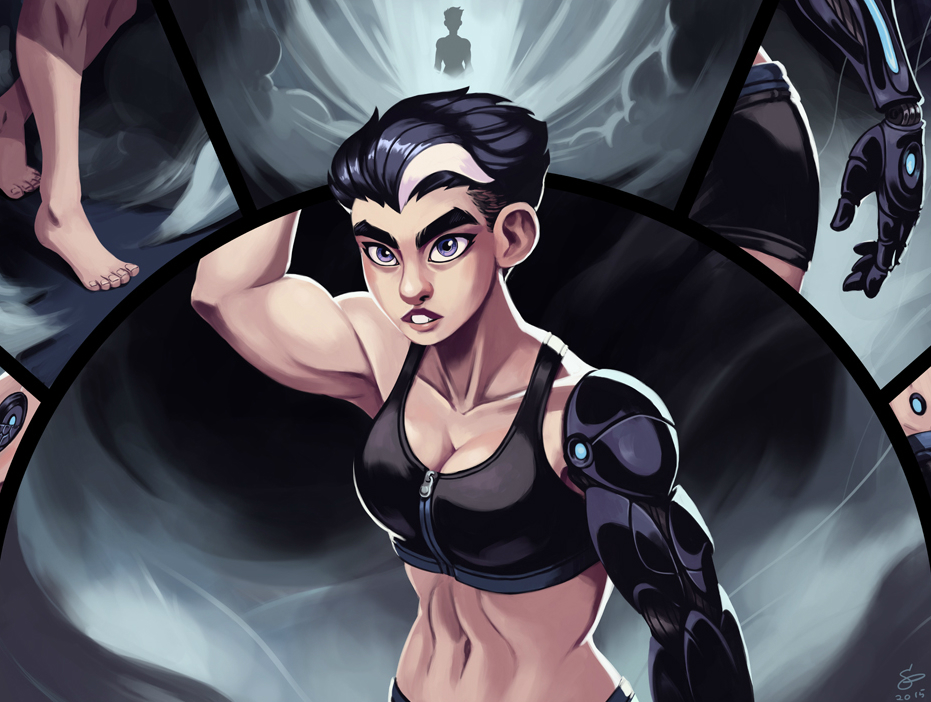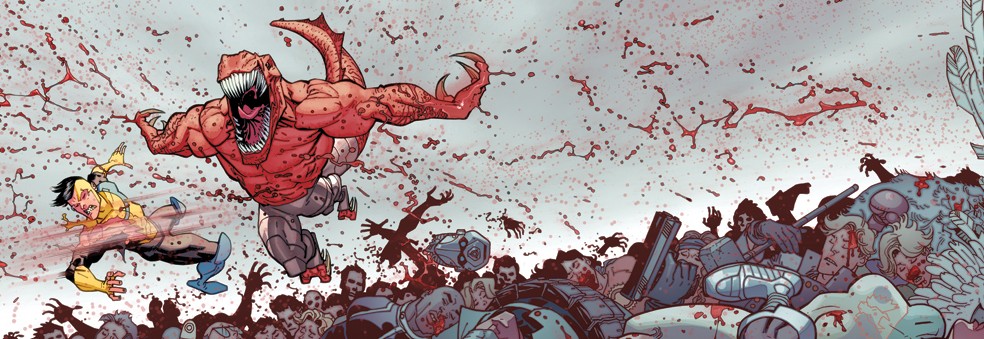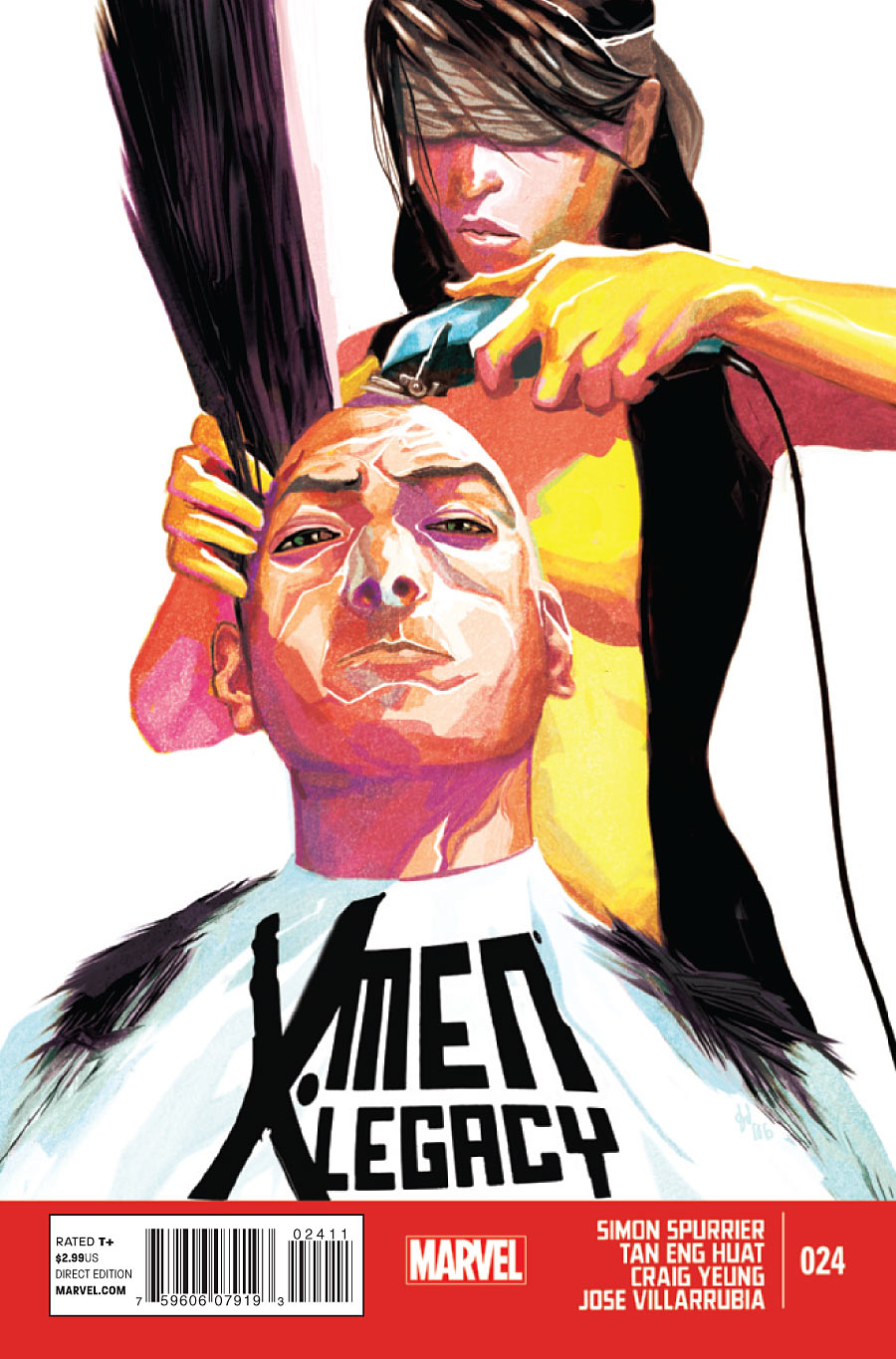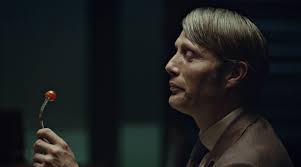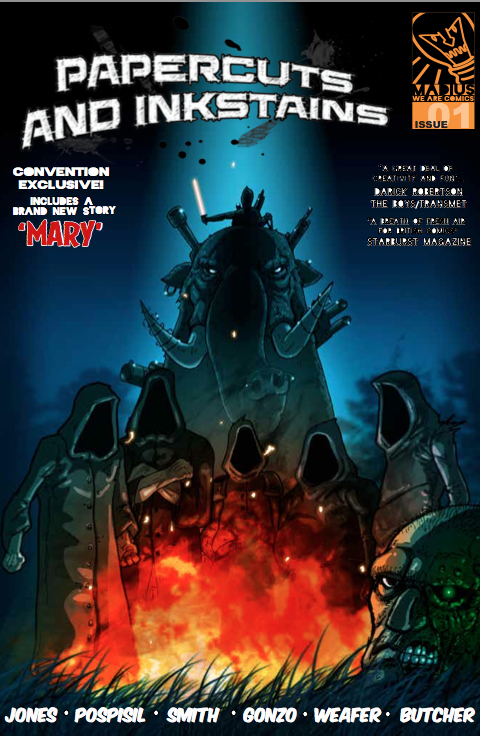Alan Moore and Dave Gibbons’ Watchmen may be the most important comic ever created. Not greatest or most beloved but rather important. I doubt this was the intent of the original comic nor on the forefront of these two now iconic creators when they set about creating this alternate earth super hero criminal mystery. I know it wasn’t what I thought of Watchmen when I first read it but to be honest, I was too young to understand. I picked up Watchmen #1 because I thought the cover was entrancing and I like the new heroes within its pages. I knew it was an ‘adult’ comic from its violence, nudity, and sex but it was obvious there was more to it but I just didn’t get it at first. I do remember being glad my comic shop ignored the adult content and sold it to twelve-year old and the long waits between later issues as the series became delayed again and again. It’s as I aged and Watchmen aged that I came to respect the story within but to be honest I don’t revere Watchmen like some people do. I still feel Miracleman is Moore’s superior work and I despise people who tell me they don’t read comics but they read Watchmen. It’s the legacy of Watchmen that fascinates me, what is buried within the story and what has been done with it I find absolutely fascinating.

I’m often accused of disparaging Watchmen, especially by people whose comic reading is only Watchmen. Maybe it’s because I don’t believe that Alan Moore is the end all be all of comic writers and I find his pretentious behavior a bit much at times. That being said Alan Moore is an excellent comic writer, one of the greats, and in the ‘80s his ideas and concepts truly did influence a generation of comic creators. I find Dave Gibbons to be a master artist, truly one of the master craftsmen to put pencil to paper, especially when it comes to laying out a comic page. I first saw his work in the pages of Green Lantern and instantly knew that he was different than other artists of the time. These two British creators crafted a brilliant comic in Watchmen that endures to this day. This may not have been their intent but it is their legacy and we are all better for it.
1986 was the exact time for a comic like Watchmen. The Cold War was reaching its zenith. Ronald Reagan had built up our nuclear arsenal to the point that if either the Soviet Union or the USA launched a warhead it was mutually assured destruction. Trust in our government had yet to be restored from the days of Watergate and Vietnam. The economy was still digging itself out of recession and many Americans were not on the path to doing better than their parents, a rarity in US history that has recently reemerged. Also, politics were beginning to morph into an us vs. them, the blue vs. the red, a zero-sum game where compromise was a sign of weakness and could whittle away your donor base, which would neuter any chance for reelection. Now this zero-sum game would not become fully formed in our politics until the Clinton-Gingrich era, with the impeachment of Bill Clinton in 1998 being the defining moment of this now entrenched phenomenon. But I’m getting ahead of myself. It’s in this Cold War era of mutually assured destruction and economic uncertainty that was the perfect setting for Watchmen. Even though Watchmen is set in an alternate reality it is easy to see this is a reality not that different from the world outside our windows in 1986. The mistrust of others is apparent, the worry of people enforcing the law, usurping the established government law enforcement entities would be a logical conclusion on both sides of the political spectrum. The right would see vigilantes as a sign that law and order has broken down, that the structures conserved from a better time are no longer working and that would be an attack on their conservative ideals. The left would see masked vigilantes as fascists, quasi-government stooges masked and beating on individuals without a care for their civil rights nor civil liberties. Yet I also have no doubt whatsoever that if our government had access to true meta humans that they would do everything within their power to use them to maintain their power in the world. The comic extension of this idea would be Mark Millar and Bryan Hitch’s Ultimates, a government funded team of persons of mass destruction used as a branch of the military to keep the world in check. I cringe at the thought of the current administration having access to a Doctor Manhattan and wonder if it would be any different than the Nixon administration present in Watchmen.
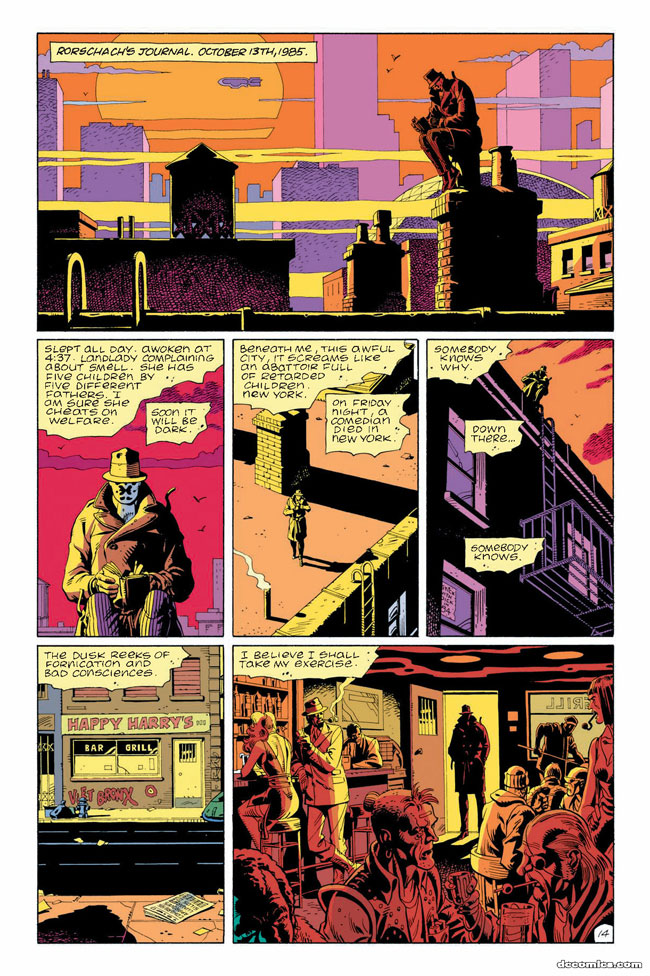
Moore has stated that Watchmen was not intended to be political yet it is dripping in politics. It’s also the politics of Watchmen that make it such an enduring property and has allowed for it to be used for some of the most profound political statements in our day. Yet the original work is chock full of political stereotypes, laced with the concept of Power Politics, and based on your viewpoint favors or destroys the author Ayn Rand’s philosophy of objectivism, which is a beloved viewpoint among right wing conservatives and avowed libertarians today. The easiest, and lasting, of these stereotypes to pick out in the original work in Rorschach. Rorschach in many ways is the protagonist of Watchmen. His uncompromising belief in black and white, right and wrong propels the story forward. It’s his unwavering investigation into the murder of the Comedian that sets up much of the story and points the reader toward the true villain of the piece. Yet Rorschach is a conservative Kook (Keeper of Odd Knowledge), a conspiracy theorist with the moral code of a far-right ideologue, a man whose rigid belief in their perception of right and wrong impacts their every thought. While at the time of publication this was a growing phenomenon in American politics but as our society has progressed so has the impact of Rorschach’s ideology to the point that today he is a beloved hero among the extreme right wing of society. In truth Rorschach is a sociopath, a murderous villain who kills rather than let the law of the land play out as they should. He feels he is always right and not willing to other who tell him differently and in unwilling to compromise. While Rorschach raged on the right wing Nite-Owl is the flaccid liberal response to the growing and more aggressive right wing of society in the ‘80s. Nite-Owl is soft, both in appearance and attitude, who sees the best in people even as society constantly lets him down and his colleagues belittle his optimism. It’s only when he embraces the fight, that society needs guidance as it will not do the right thing on its own, that he becomes strong once again yet to become strong he must embrace the mask and operate outside the government, a government the liberal places their hopes and dreams in. There’s also the Comedian, who even though is dead in the first issue, is the focal point for progression of the story in Watchmen. The Comedian represents a growing presence in politics by 1986, the amoral political operative (politico) who doesn’t care about ideology or doing what they believe is right but rather what benefits them personally. With little regard for the people nor a positive opinion of the political actors they work for this class of politico will do anything to win, destroy anyone in their way, and pad their bank account along the way. Now a few of these politicos have a moral epiphany, a wake up that what they’ve done is wrong, and maybe if given the chance they will fix their actions. Yet by fixing their actions they have to burn the political and societal elite they worked for and that can lead to dangers and in some cases, like the Comedian’s death.
Then there is Adrian Veidt, Ozymandias, maybe the most complicated character in all of Watchmen. Is he the hero he thinks he is or the villains he’s perceived to be? Is he both? By the time of Watchmen there was a growing movement in society and specifically right-wing politics of Objectivism which is based off the writings and teaching of Ayn Rand. Rand described her belief system as such in her book Atlas Shrugged- “My philosophy, in essence, is the concept of man as a heroic being, with his own happiness as the moral purpose of his life, with productive achievement as his noblest activity, and reason as his only absolute.” Therefore, its man’s responsible to do what is best for themselves and therefore that will be what is best for society. Objectivism does not allow for altruism, the idea of living for others and the obligation most heroes site for putting on the mask and fighting for justice. Altruism serves others where objectivism dictates you serve yourself and there is no better example of this then in Adrian Veidt. Veidt is described as the smartest man alive, yet he cannot formulate a better way to save the world then by sacrificing millions of people? Veidt is selfish and arrogant, his life revolves around his desires and his wanting to survive and to do so he is willing to become the villain of the story, even though in his head he is the hero who saved the world. Objectivism has found a home in the right-wing elements of society and can be seen in many actions of Republican leadership within our political system. As you watch Senators and House members arguing for lower taxes and less government oversight of corporations be aware of how that benefits them, how that serves their own purpose and if that ends up helping others then so be it. This is objectivism, this is Adrian Veidt.
As I wrote earlier Moore claims Watchmen is not a political book, and it’s not. Moore and Gibbons are not making a political statement within the pages of Watchmen but that doesn’t mean that there isn’t political meaning there. In many ways though it is the legacy of Watchmen that really draws out this political discourse. As Watchmen branched out into other media these new voices, these new creative visions have done more with the politics of the story then maybe either Moore or Gibbons ever intended or envisioned. There have been two comic book projects to take on the mythos of Watchmen and to be honest I have only read one of them, and that is Doomsday Clock. Even with its monumental delays and loss of momentum I did enjoy Doomsday Clock but even though it was a thematic sequel to Watchmen it was never as deep as its predecessor. Doomsday Clock reads more as a superhero event then a murder mystery from a bygone era. It was a chance for Geoff Johns and Gary Frank to play with the Watchmen characters and integrate them into the broader DC universe, which was never the intent of Moore and Gibbons but by 2018 Moore had divorced himself from DC and Gibbons had given his approval to the thematic sequel. I read Watchmen then Doomsday Clockrecently and I will applaud both Johns and Frank for the effort and detail they put into Doomsday Clock to make it look and feel like Watchmen. It’s just not as deep of a read or as thought provoking as the original. Its intent was to push the DC universe forward and to define why it had become so dark. There is also Before Watchmen, a 2012 attempt by DC to mine the Watchmen universe for a series of mini-series that felt like a money grab over the popularity of the source material. I’ve never read any of these mini-series as I had no interest. Everything I needed to know about the origins of the heroes in Watchmen I found in the original twelve issues. I would have loved for Moore and Gibbons to do their own prequel series, Minutemen, that was being planned before Moore and DC had their falling out over ownership and rights of Watchmen. Once Moore left DC the probability of that prequel was zero percent.

Even before DC began using new creators to mine Watchmen for new material there had already been a new creator to take on Watchmen, director Zack Snyder. In 2009 the long-planned film adaptation to Watchmen finally reached theaters around the world. I remember at the time of being a bit snobbish at the idea of anyone being able to translate the source material onto the silver screen and I am sure that influenced my original viewing as I remember walking out of the theater being underwhelmed and angry that Snyder had the audacity to change the ending. One of the key points of Watchmen is that Veidt orchestrates an extradimensional Lovecraftian monster invasion that devastates New York and kills millions. It’s this attack that unifies the nations of the world to put aside their differences and unite due to this new threat. It’s also the secret that all of the heroes must keep to protect the future, all the heroes except Rorschach, whose black and white, right and wrong moral compass doesn’t allow him to keep the secret and leads to his execution at the hands of Doctor Manhattan. Snyder and company make one fundamental change to the film, rather than an interdimensional attack Veidt uses a series of nuclear explosions around the world and masks the radiation signature with that of Doctor Manhattan, meaning that America’s most powerful asset is not an asset at all. Nearly everything else in the movie is lifted from the pages of the comic and my opinion of this movie has changed quite drastically as I have come to love this movie.
Snyder’s interpretation of Watchmen is incredibly thought provoking. Not only does he hit all of the subtext within the comics but adds in elements of sexuality and hate within our society. These issues are present in Moore and Gibbons work but Snyder really enhances the American morality problems and the bias that undercuts to much of our society. Snyder’s 1985 is a dark and divided time period and the grime of his New York permeates from the screen. The characters are incredibly faithful to the comic and the performances are actually quite amazing, especially Jeffery Dean Morgan’s Comedian and Jackie Earle Haley’s Rorschach. Snyder takes the ideologies of the core heroes and really has a field day within the context of the time period. Rorschach’s far right views are at the forefront of his story and its scary at how disconcerting some of his stances are in both 1985 and that they still existed in 2009 and sadly today. But Haley truly is Rorschach. I’m mesmerized by his performance both in and out of the mask and he steals every scene he is in. Even though I wasn’t surprised by any story beats I find myself eager for some of the scenes, especially when Rorschach is imprisoned. I also found some of the super heroics and violence of the book more powerful on film. The underlying tension throughout the film is wonderfully stifling as the viewer is just waiting for the pressure to blow. This is where the major change, the reveal of the atomic bombs over the Lovecraftian monster actually works with what Snyder has done with Watchmen.
Power Politics is the core to modern international politics. Power politics is the idea that distributions of power and interests and changes to that distribution leads to conflict and war. Most international politics is based on the idea that resources are limited and all nations are in competition for those resources. To maintain ones interests a nation-state needs to be powerful to protect what is there’s or to take what they need. Power politics dictated the Cold War and it continues to influence policy today and it is very prevalent in the Watchmen film that the reliance on Doctor Manhattan is America’s biggest resource. It’s the fear of Doctor Manhattan that keeps the other countries of the world in check but with resources dwindling it’s apparent through the film that the fear those countries once felt is being displaced by a need for survival. It’s also the reason why the fear of Doctor Manhattan not being an American asset but someone that every country must fear works in the context of the film and why the beauty of Watchmen at this point in time is that it can be used in ways that the comic never intended or wanted to be.
The Watchmen movie is a powerful piece of film adaptation. It is incredibly true to the source material but takes some licenses that are necessary and while purists might despise what Snyder did but if you honestly look at Snyder’s film it is a love letter to Watchmen. It also allows for others to take up the Watchmen mantle and that led to the most poignant and important piece of televised fiction I may have ever seen- HBO’s Watchmen series. I was late to the party on the Watchmen show but once I finally watched the first episode I was hooked. HBO’s Watchmen is nothing like I expected it to be and everything I wanted it to be without even knowing what I wanted to be. Creator and principle writer Damon Lindelof crafted an incredibly perfect and timely series that takes on modern society with crowbar but does so using the mythos of Watchmen. Billed as a thematic sequel to the original comic, HBO’s Watchmen uses what Moore and Gibbons created as a template but then took that original story and used it as a brilliant commentary on modern society that focuses on race relations but also modern identity politics.

Race in America is a sensitive topic. It shouldn’t be but it offends the white majority as to how awful they have been to minorities in America. As a white male it offends me to no end what America’s history with Black Americans is and continues to be and it equally offends me when white Americans and specifically white politicians tell the world that race relations in America are great. We have a race problem in America and I applaud the creators of the Watchmenshow to take on race and politics in such a direct manner. The use of Tulsa, OK and the race riots that occurred in the Greenwood section of the city in 1921 was a poignant choice and I was mildly shocked that this series was the first-time many American’s have ever heard of this disgraceful atrocity. Yet to use this event along with the original Watchmencomic was a stroke of genius. It makes perfect sense in today’s polarized political climate where white supremacist feel comfortable crawling out of their sewers would gravitate toward Rorschach and his extremist ramblings and to replace the Klan hood with a Rorschach mask was fitting. Then the rabbit hole Lindelof and his creative team went down with Hooded Justice, once of the more mysterious heroes from the original comic and ‘retconned’ his origin and tied him into the racial injustice of 1940s America was an amazing choice and gave so much to that character and his arc. But the kicker to me was then to place the police in masks, to hide them from the citizens they protect and to have some of those police officers take on alternate identities like Sister Knight, Looking Glass, and Red Scare counters some of the racial rhetoric going on within the protests occurring outside our windows today. I can only imagine the uproar if we had a national act where police officers were to be masked and no one knew who was policing us. It begs the question of which side would be more infuriated, the left or the right? I think that’s what I appreciated about the Watchmen show the most, it made me think.
I also found the concept and perception of the mask to be an interesting motif throughout the show. How so many people perceive them to be a hero under the mask but how others see them is completely different, whether it’s the Tulsa PD, the 7th Cavalry extremist group under their Rorschach masks, to the Klan in the flashbacks. I also thought the dichotomy of how the classic heroes were presented to the people of 2019 to how they really were. Especially Hooded Justice, whose character arc was simply amazing as it was all pieced together. To see his origin story and every aspect of his life represented in two vastly different versions was a great look at how white and black America view our history, how white and all minority see the roots of America and the American Dream in vastly different ways. So smart and so well done. Also, the use of the mask in Tulsa but not federally, as federally masks are still a crime. This opens up an interesting subtext as it touches on federalism and the concept of state’s rights or states choices which ever since the Reagan revolution has been code for racist and misogynistic behaviors as states across the nation have peeled back civil rights and equal rights reforms in the name of personal freedom and a states choice to decide for its citizens. State’s rights might have led to legalized marijuana but it also has allowed for draconian abortion laws and oppressive actions against anyone who identifies as a member of the LGBQT community. The fact that Tulsa allows masks in the face of a federal law opens up an entire series of questions on federalism and what states should and should not be allowed to do and whether they need to listen to the federal government if it affects the safety of their citizens.
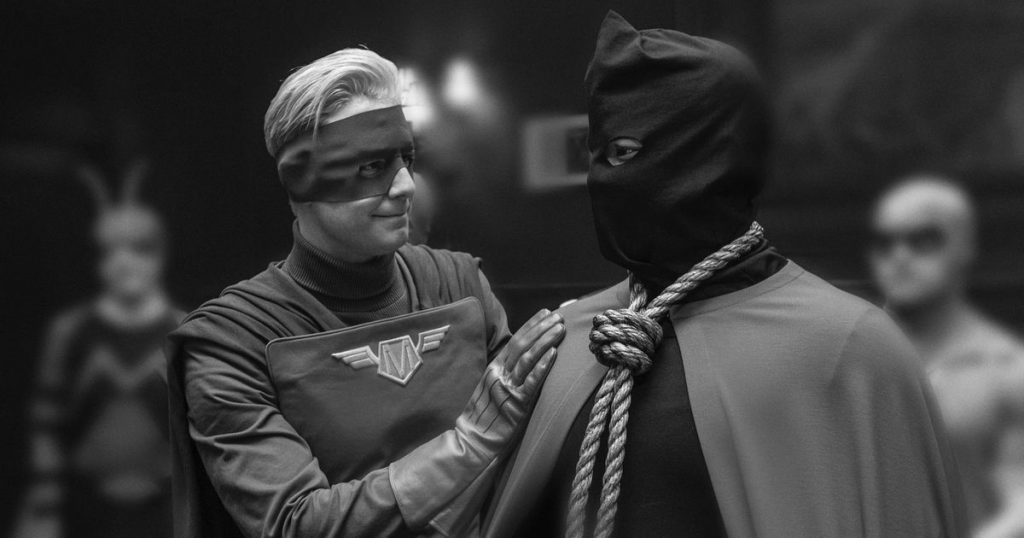
Watchmen was also the perfect show for today. While I spoke of Power Politics earlier there is another phenomenon in politics today referred to as Identity politics. Identity Politics is simply a tendency for people of a particular religion, race, social background, etc., to form exclusive political alliances, moving away from traditional broad-based party politics. As I stated before, politics today is sadly a zero-sum game with winners and losers and when your side is losing its easy to point the finger at others and say it is there fault. We have a president today who won his office by telling a large group of Americans that their economic misfortunes are not their fault and that every perceived ill in society was because of someone else, someone who was a of a different color, sexuality, orientation, or identity. It comforts older white Americans who have rose colored glasses of what used to be to think that everything wrong in our society is someone else’s fault rather than their own for tolerating racism and oppression for years. Even currently, when it is literal life and death we have leadership that vilifies and mocks those who dare to wear a mask, even though science says that it’s for everyone’s benefit, but if you don’t want to wear a mask you know have an excuse to blame those who do. Blaming others is an undercurrent throughout the entirety of Watchmen and sadly represents some of the issues of today. The creators of the show took a piece of graphic fiction and adjusted it into a modern tale of race and identity in America and something that is one of the most powerful pieces of fiction I have ever seen.
Watchmen is one of if not the most important comic ever created and its brilliance and legacy continue to influence the world today. Alan Moore and Dave Gibbons super hero murder mystery has become so much more than what the creators and DC could have ever imagined. Watchmen has also become an influential work of fiction to the mainstream community and its characters and themes have impacted pop culture and society for years now, and its importance becomes even more important as society around us struggles into a modern, more inclusive society. Watchmencontinues to be an important property for DC comics, with a new Rorschach comic just being announced. While the original creators have long left Watchmen behind it’s what the new wave of comic and media creators do with the property is incredibly fascinating and can be incredibly important. I look forward to what comes next but am impressed with what has already come before.


